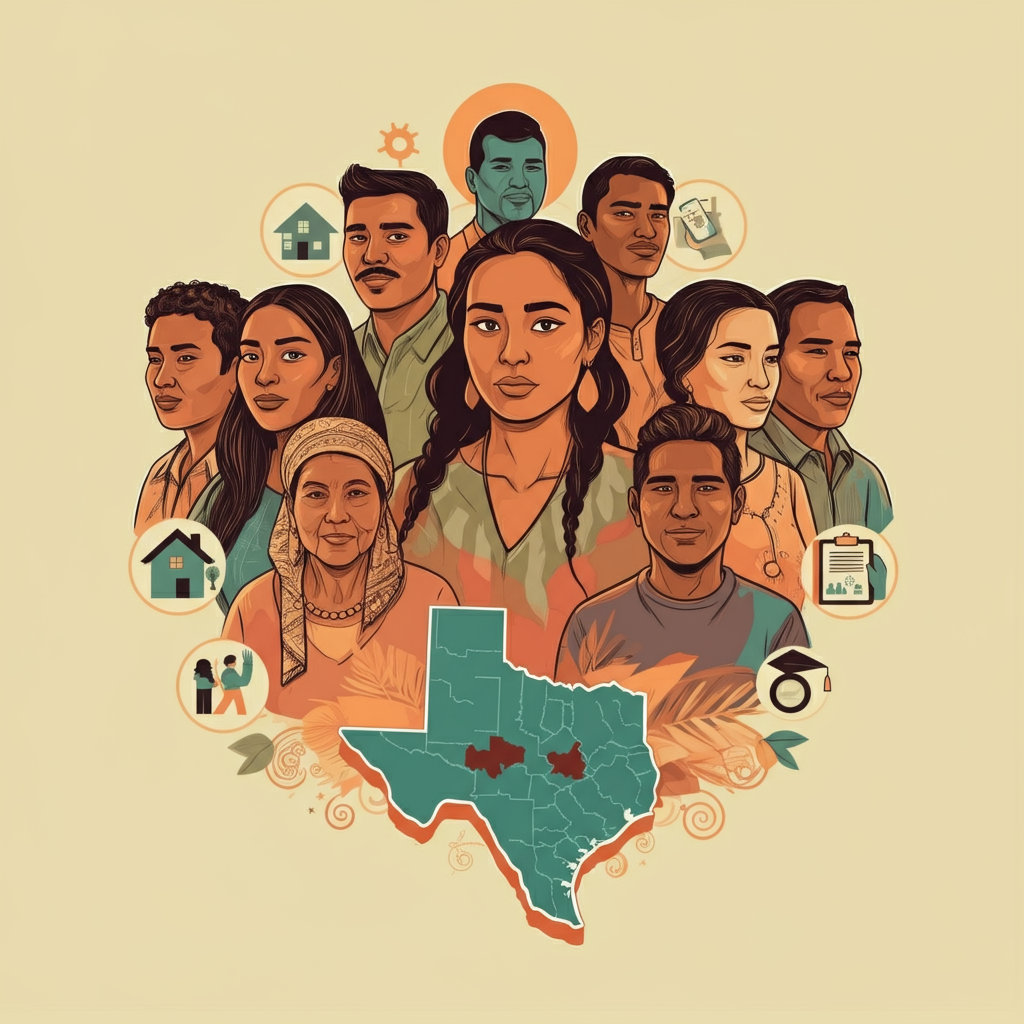The journey of an immigrant is rarely walked alone. In the Dallas-Fort Worth area, a network of dedicated community organizations serves as a vital lifeline, offering support, resources, and a sense of belonging to newcomers. These groups are the bedrock of integration, providing everything from legal aid and language classes to job training and cultural support. For immigrants navigating a new life in North Texas, connecting with these organizations can make all the difference.
This article will shine a light on the crucial role these community pillars play. We’ll explore specific DFW-based organizations, detail the services they offer, and provide actionable advice on how you can connect with them to find the help you need.
The Essential Role of Community Support
While federal agencies like the Department of Homeland Security (DHS) and U.S. Immigration and Customs Enforcement (ICE) define the legal framework of immigration, community organizations handle the human side of the equation. They fill the gaps that government processes don’t address, focusing on the well-being and successful integration of individuals and families.
These groups understand the local landscape and the specific challenges immigrants face in DFW. They act as navigators, advocates, and safe havens, helping people overcome barriers and build a stable future. Their work strengthens the entire metroplex by fostering a more inclusive and prosperous society for all.
Key Support Organizations in Dallas-Fort Worth
DFW is fortunate to have a robust ecosystem of nonprofit groups dedicated to serving its immigrant and refugee populations. Here are some of the key players and the invaluable services they provide.
Legal Assistance and Advocacy
Navigating the complexities of immigration law is one of the biggest hurdles for newcomers. Several local organizations offer free or low-cost legal services to ensure people have access to justice.
- Human Rights Initiative of North Texas (HRI): Based in Dallas, HRI provides free legal representation to asylum seekers and immigrant victims of human rights abuses. Their pro-bono attorneys help vulnerable individuals find safety and stability through humanitarian pathways. You can learn more about their work at hrionline.org.
- Justice for Our Neighbors DFW (JFON): With clinics across the metroplex, JFON offers free and affordable immigration legal services to low-income immigrants. Their team helps with cases ranging from family petitions to asylum applications, providing crucial consultations and representation. Find clinic locations and information at jfondfw.org.
- Catholic Charities Dallas (CCD): The Immigration and Legal Services department at CCD is one of the most established programs in the region. They offer trusted, low-cost legal help for a wide array of cases, including citizenship, DACA, and family-based visas. They serve all individuals, regardless of faith. More details are available at ccdallas.org/services/immigration-legal-services/.
These organizations are indispensable, but the demand for their services is immense. For urgent matters, such as facing removal proceedings, securing an effective Deportation defense is critical.
Resettlement and Integration Services
Beyond legal matters, adjusting to a new country involves countless practical challenges. Resettlement agencies specialize in helping newly arrived refugees and other immigrants get on their feet.
- Refugee Services of Texas (RST): With a major office in Dallas, RST provides comprehensive services to help refugees, asylees, and trafficking survivors rebuild their lives. Their programs include initial housing assistance, job placement services, social adjustment support, and youth programs designed to help children adapt to their new environment. Explore their services at rstx.org.
- International Rescue Committee (IRC) in Dallas: The IRC offers a holistic approach to resettlement. They help families secure housing, learn English, access medical care, and navigate the school system. Their economic empowerment programs focus on financial literacy and career development to help clients achieve self-sufficiency. Visit them online at rescue.org/united-states/dallas-tx.
Education and Social Support
Integration is also about building connections and acquiring new skills. Several organizations focus on education, empowerment, and creating a sense of community.
- RAICES Texas: While known for its legal services, RAICES also provides social programs aimed at supporting immigrant families. This includes connecting them with essential services, offering shelter, and advocating for their rights at local and national levels. They have a strong presence in DFW. Learn more at raicestexas.org.
- Local Libraries and Community Centers: Many public libraries across DFW, such as the Dallas Public Library, offer free English as a Second Language (ESL) classes, citizenship preparation courses, and computer literacy workshops. These are safe, accessible spaces for learning and connection.
While these groups provide a powerful support system, some cases require the dedicated attention and resources of a private legal firm. If you need personalized guidance on your case, consulting an experienced Immigration Lawyer can provide clarity and a strategic path forward.
How to Connect with DFW Community Organizations
Getting help starts with taking the first step. If you or someone you know needs support, here is some practical advice for connecting with these valuable resources.
- Identify Your Primary Need: Are you looking for legal advice, help finding a job, or English classes? Knowing your most urgent need will help you find the right organization. Start with the websites listed above to see which one best matches your situation.
- Call and Ask About Intake Processes: Most nonprofits have a specific process for accepting new clients. Call their main number or look on their website for information about intake days, clinic schedules, or initial consultations. Be prepared to briefly explain your situation.
- Prepare Your Documents: When you go to an appointment, bring all relevant documents with you. This includes your passport, visa, any notices from immigration agencies, and other important papers. Having everything organized will help the staff assess your case more efficiently.
- Be Patient and Persistent: These organizations help thousands of people and often operate with limited staff and funding. It may take time to get an appointment. If one organization cannot help you, ask if they can refer you to another group.
- Attend Community Events: Many of these groups host workshops, “Know Your Rights” presentations, and community gatherings. Attending these events is a great way to get valuable information and connect with staff and other immigrants in a friendly setting.
The path to building a new life in Dallas-Fort Worth is made easier by the incredible network of community organizations ready to help. By reaching out and connecting with these groups, you can access the tools, knowledge, and support needed to not just survive, but truly thrive in your new home.






